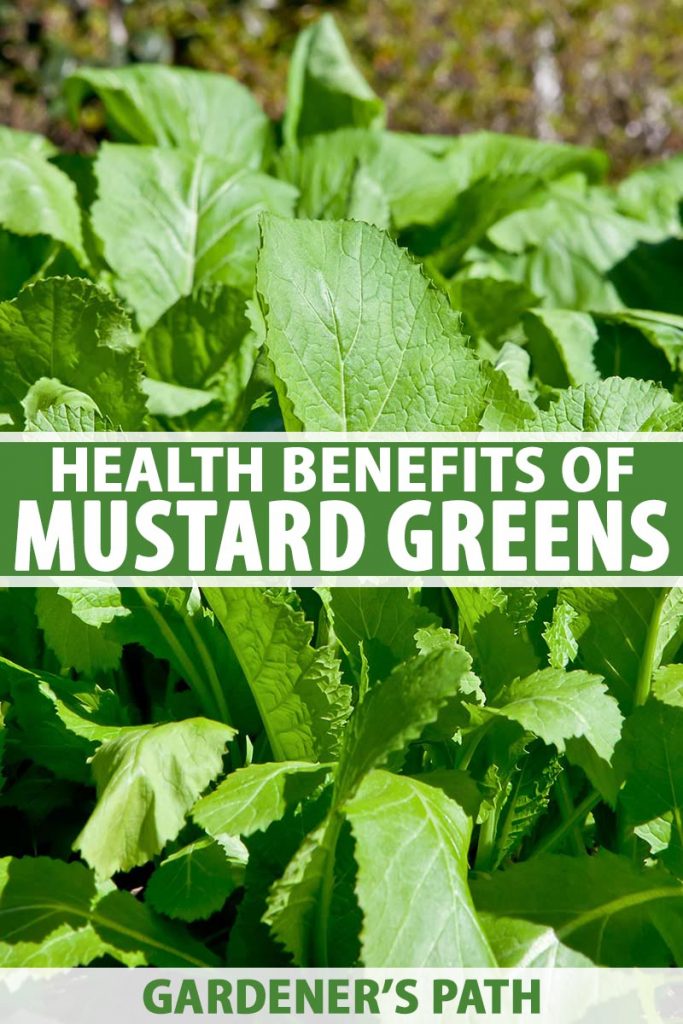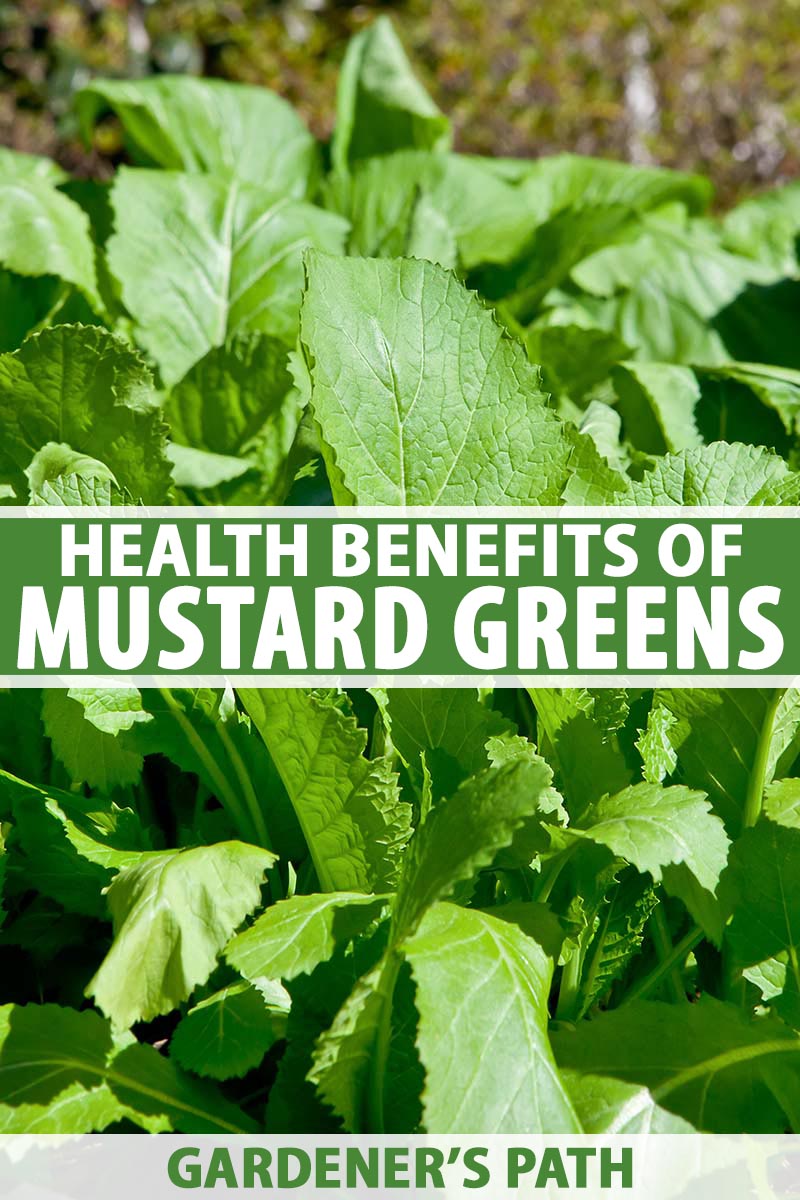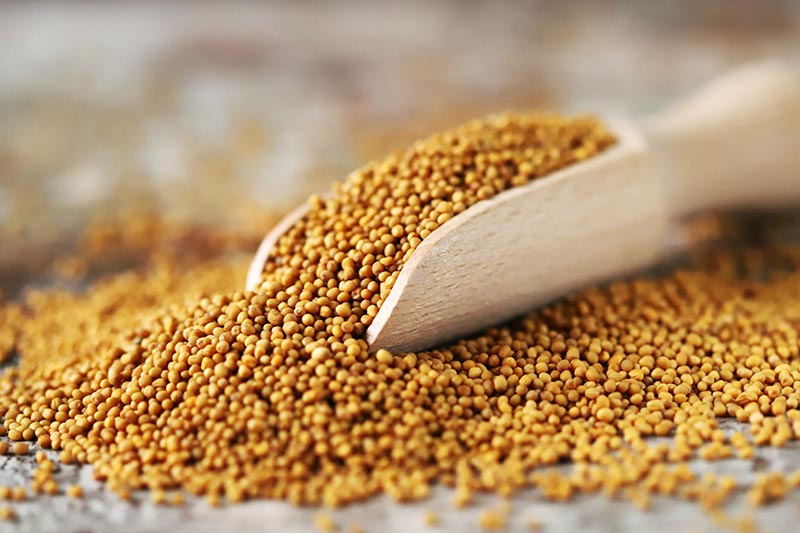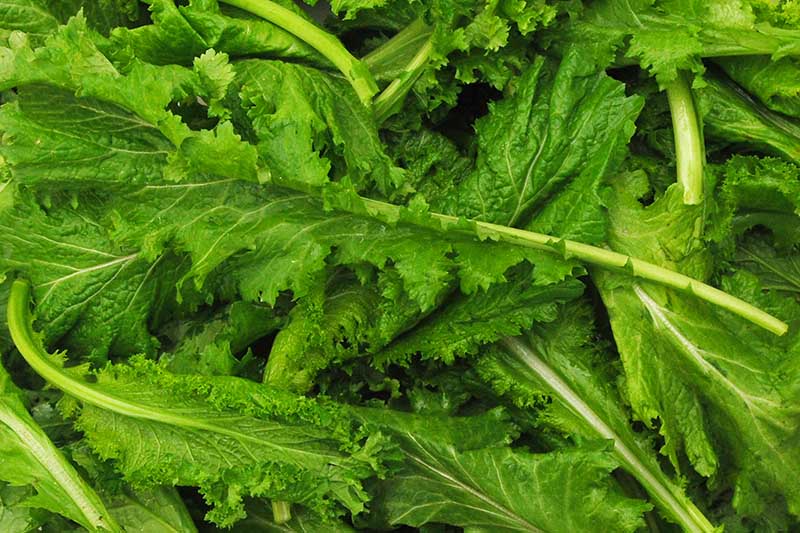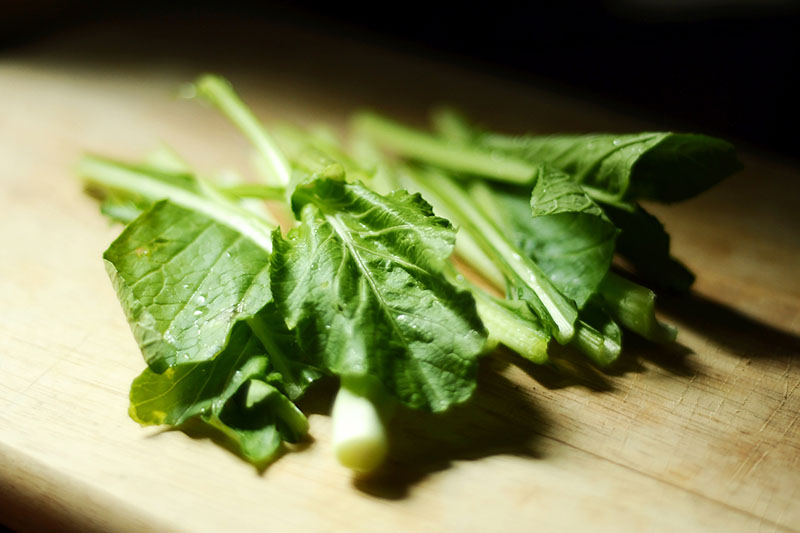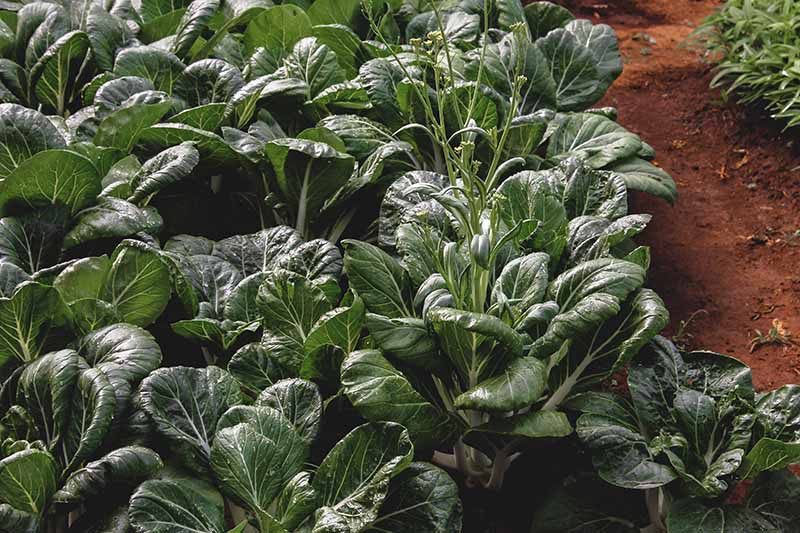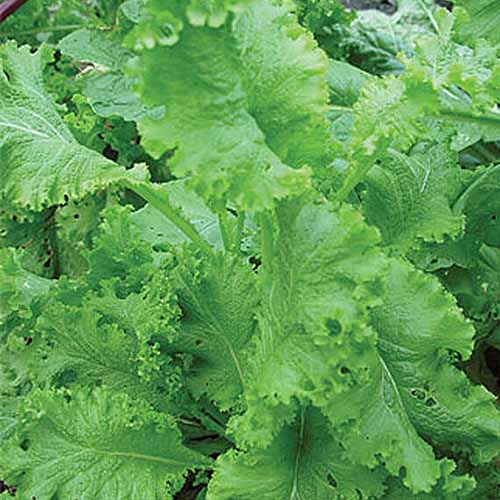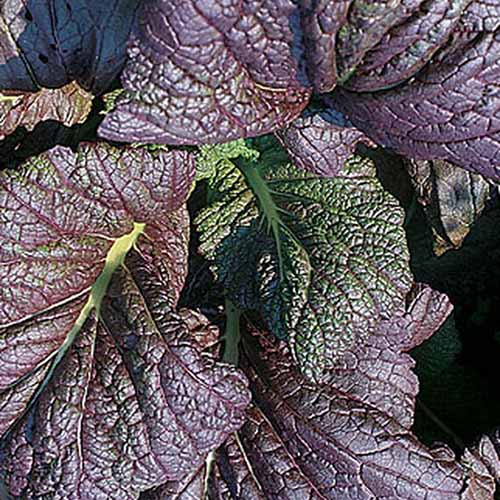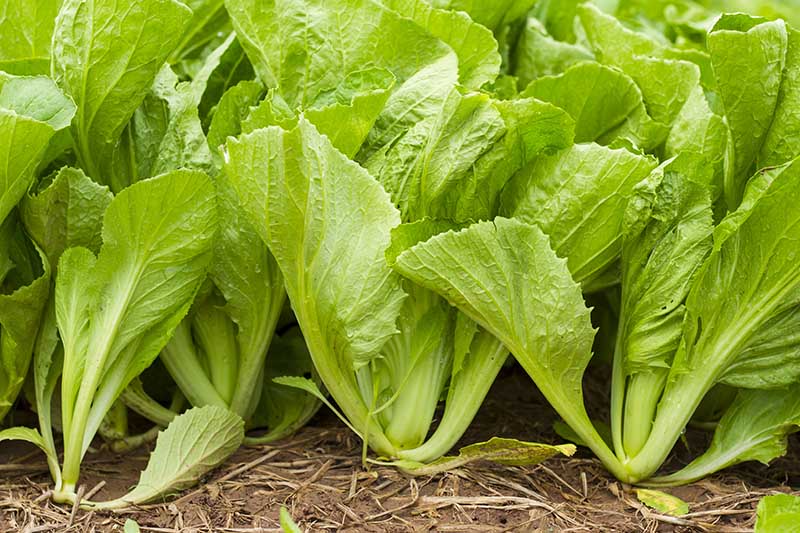This peppery plant brings a unique flavor and vital nutrition to any meal. We link to vendors to help you find relevant products. If you buy from one of our links, we may earn a commission.
What Are Mustard Greens?
Mustard greens are similar to kale and collard greens, which are all a part of the Brassica genus. Brassica juncea, or brown mustard, is commonly grown for its seeds. These can be used whole in cooking, or ground to make – you guessed it – brown mustard, a tasty and beloved condiment.
Beyond the seeds, the leaves of this plant can also be eaten. They offer a similar peppery, bitter bite as the spicy sandwich spread you know and love. These leafy greens are generally steamed or sauteed, which helps to lower the level of spiciness.
They can also be prepared similarly to collard greens with added bacon, added to a casserole, or braised with some apple cider vinegar. The leaves can also be eaten raw, adding some spice to a salad or a homemade pesto. You could even try mustard green chips as a snack, with this recipe from our sister site Foodal.
Nutritional Composition
They can spice things up for your taste buds, and improve your nutrient intake! They are considered a nutrient-dense food, meaning that they bring a lot of nutrition to the table relative to the amount of calories they contain.
One cup of cooked leaves contains only 36 calories, but it provides 17 percent of the recommended daily intake of calcium for adults, 8 percent of daily phosphorus needs, nearly 100 percent of vitamin A, and over 8 times the recommended daily amount of vitamin K.
Health Benefits
That’s a lot of power for a little leaf! This nutrient density helps to bring us many health benefits. Much of the vitamin A comes from the carotenoids lutein and zeaxanthin. These antioxidants help to support our retinas. Lutein may also potentially reduce the risk of certain cancers, like colon and breast cancer.
Vitamin A also helps with cell reproduction and differentiation such as, for example, being necessary for the process that makes a hair cell different from a skin cell. Vitamin K is notably high in these veggies. This vitamin is most commonly known for its role in blood clotting. Many people on blood-thinning medications are asked to limit their vitamin K intake. Ask your doctor for any specific recommendations. Aside from clotting, vitamin K also helps with bone formation and regulation of certain enzymes. Vitamin K is unique because it is not only found in our diet, but can be produced by bacteria in the gut as well.
Selected Cultivars
Ready to reap these benefits for yourself? If you’re looking to grow your own, there are several cultivars to choose from.
‘Southern Giant Curled’ Try this ‘Southern Giant Curled’ option from Burpee for a classic spicy flavor, or these ‘Tendergreen’ seeds, from Eden Brothers, for a milder taste.
‘Giant Red’ For something really unique, check out this ‘Giant Red’ Japanese variety, also from Burpee. Be sure to check out our “13 of the Best Varieties of Mustard Greens to Grow in Your Garden” for more options!
Mustard Magic
These leafy veggies are available in several different varieties and all of them offer a plethora of health benefits, making them, dare I say, magical.
Which ways will you bring this special flavor to your table? Drop a comment below with your most magical mustard green ideas. For more information about growing leafy greens in the vegetable garden, take a look at these articles next:
What Are the Health Benefits of Homegrown Collard Greens? 7 of the Best Collard Greens Varieties to Grow at Home How to Harvest Beet Greens
© Ask the Experts, LLC. ALL RIGHTS RESERVED. See our TOS for more details. Product photo via Eden Brothers. Uncredited photos: Shutterstock. The contents of this article have been reviewed and verified by a registered dietitian for informational purposes only. This article should not be construed as personalized or professional medical advice. Gardener’s Path and Ask the Experts, LLC assume no liability for the use or misuse of the material presented above. Always consult with a medical professional before changing your diet, or using supplements or manufactured or natural medications.
